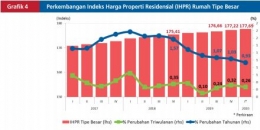Nothing in the world is more dangerous than sincere ignorance and conscientious stupidity. ― Martin Luther King Jr.
In 1964 a young woman was raped and murdered in New York while dozens of neighbours looked on but did not come into action to help her
In 2018, in Jehanabad, Bihar, a group of men molested a minor girl in broad daylight, while the people who had gathered around the scene did nothing to help her. Some even took videos of the incident, which then went viral.
18-year-old Samyukhtha Sunil was one among many women harassed during the infamous 2017 New Year’s Eve incident in Bengaluru on Brigade Road but nobody helped her.
Thousands of years of human civilization have passed, but these terrifying news still overwhelm the world. Plenty of campaigns about social and natural problems have been and are being taught all over the world. Every problem seems to be solved with a different solution. But if we are aware, one thing can actually change everything. And that one thing is human ignorance.
As human beings, we are all destined to have a degree of natural empathy or the ability to understand what another person is thinking and feeling based on rules for how one should think or feel. There is a positive correlation between feeling empathetic and being willing to help others. If so, then why do we still need to campaign human rights? Or social awareness? Is caring about other people not already embedded in our nature?
The Facts Betray The Fate
Furthermore, the debate concerning whether the impulse to help is based in altruism or self-interest still remains. In fact, the world is still witnessing global-scale disasters. The world is threatened by climate crisis and racism, slaughters in the Middle East, and the disheartening amount of hungry people in sub-Saharan Africa.
Despite other causes, these disasters are fundamentally caused by the pluralistic ignorance of humans. If Martin Luther King did not lead the demonstration on the street for the 1960’s America's segregation policy, or if the French and American stayed silent on King Louis XIII’s absolutism and British’s tax discrimination, our history books would have a completely different story.
In a classic research, O’Gorman (1975) shows that the majority of whites in the U.S. in 1968 did not favor segregation. However, about half of them believed that the majority of whites did favor segregation; and those who overestimated support for segregation were more willing to support housing policies that allowed others to segregate. What he studied is known as pluralistic ignorance, a situation in which a majority of group members privately reject a norm, but go along with it because they assume, incorrectly, that most others accept it.
As an example, imagine we are sitting in a large lecture hall listening to an especially complicated lecture. Then, the lecturer pauses and asks if there are any questions. No hands go up, and we wonder whether these people truly understood what the lecturer is talking about and we feel completely lost. The fear of looking confused keeps us from raising our hand, but as we look around the room at our impassive classmates, we interpret their similar behavior differently. We take their failure to raise their hands as a sign that they have understood lecture perfectly and that they genuinely have no question.
Cause and Effect
A lot of factors influence people’s behaviors such as the environment, other people, and the media. Whenever people decide to constantly be silent as a reaction to crime, deviances, and many others, sooner or later it will be seen as a normal phenomenon. This is what psychologists call the normalization process, in this case being tolerant with deviances. Then, what is the mechanism in which this process takes place?
Let’s take a look at how the process of normalization has taken place in Indonesia. Recently, an online prostitution suspect said “don't be pretentious” as a way to defend herself from social judgement. Some suspects of drugs claim that it is the best solution to relieve their stress. Not giving any effort to reduce it, some influencers still trigger people to being ignorant. As a result, their influences have induced some people to start consider cheating during an exam, corruption in the bureaucracy, online prostitution, bribing for driving license, and even violating driving signs as normal actions.
Although we have understood how bad acts of deviance are, it is important to remember that not all deviant acts produce long-term negative outcomes. In sociology, deviances are classified into primary and secondary deviance. The former is a deviant act that receives little social reaction or mild, corrective reaction. The latter, by contrast, is a deviant behavior that results from a stigmatized sense of self that aligns with society's concept of a deviant. In other words, it's a deviant behavior that results from being labeled as a deviant by society.
Furthermore, if a primary deviance is being tolerated by the society continually, it can be a secondary deviance or “more tolerable crimes”. Edwin M. Lemert, a sociologist, emphasizes that the transition from primary to secondary deviance represents a process of development. Increasingly stronger deviance is followed by ever stronger social reactions, which ensure that deviance solidifies.
People’s Power on Economics
In economics, we face some plural problems such as inequality, poverty, unemployment, workforce discrimination and many others. Even though they are caused by various variables, pluralistic ignorance still has a big role whether to make things worse or fix them up.


For example, the high price of housing in Indonesia decreases the ability of people with low income to afford a house. High rates of real estate inflation are also triggered by a widely-known assumption that buying real estate is the most profitable investment. This imposes pluralistic ignorance towards those with low income who need housing to survive rather than to gain profit and accumulate wealth.
Even worse, the ongoing situation has inflated prices of small medium houses, which are segmented for low-income society, at a much higher rate than that of big houses. At a high loan interest rates of 8.92%, more than 74% of real estate buyers are still willing to select a bank loan as an option to afford a house. This is not including additional floating interest rates and other expenses. It shows how high the demand for real estate is and how this situation greatly harms people with low income.
As for the case of these collective problems, the government has the responsibility to solve them. For inequality, left wing and right wing populist leaders have come up with different kinds of solutions. Right wing populism is dominated by repatriated offshore funds. Left wing populism, on the other hand, is characterized by redistribute ownership and wealth from “The 1%” to common people.
However, the government certainly can’t stand alone in solving all of the problems that we face. In fact, small and medium enterprises absorb 97% of Indonesia’s workforce. Private sector also has an obligation to our society that can be manifested through the so-called corporate social responsibility funds (CSR). Moreover, the mass media also has the power to spread social concern by influencing people and they should utilize that power for good causes like solving pluralistic ignorance. Therefore, pluralistic ignorance on the private sector and society must be reduced as they hold one of the most important roles of human civilization.
By: Fariz Raffandi Marzuki | Ilmu Ekonomi 2019 | Staff Kajian Kanopi FEB UI 2020
References without hyperlink
Duque. Mauricio. (2017). Pluralistic Ignorance and Social Change : A Model of Conformity to the Perceived Majority.
Rasmus K. Rendsvid. (2014). Pluralistic ignorance in the bystander effect: informational dynamics of unresponsive witnesses in situations calling for intervention.
James D. Westpal & Michael K. Bednar (2005). Pluralistic Ignorance in Corporate Boards and Firms’ Strategic Persistence in Response to Low Firm Performance.
Somin, Ilya. (2015, June 4). Public ignorance about economic inequality. The Washington Post. Retrieved from here 25 July 2020 (21.47).
Baca konten-konten menarik Kompasiana langsung dari smartphone kamu. Follow channel WhatsApp Kompasiana sekarang di sini: https://whatsapp.com/channel/0029VaYjYaL4Spk7WflFYJ2H








